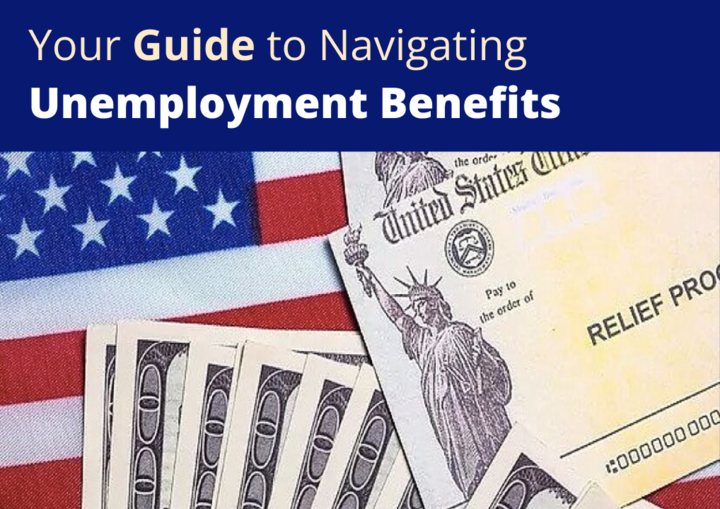As a consumer, it is essential to be aware of your rights, particularly when it comes to financial transactions and the use of credit cards. The Fair Credit Billing Act (FCBA) is a crucial piece of legislation that protects consumers from unfair billing practices and provides a framework for disputing charges on credit card statements. Under this act, consumers have the right to dispute charges that they believe are inaccurate, unauthorized, or fraudulent.
This means that if you notice a charge that you did not make or if you were billed for goods or services that were not delivered as promised, you have the legal right to challenge that charge.
Moreover, consumers are entitled to a timely response from their credit card issuers when they file a dispute. The FCBA mandates that credit card companies must acknowledge your dispute within 30 days and must resolve the issue within two billing cycles, typically no longer than 90 days.
This legal framework empowers consumers to take action against erroneous charges and ensures that they are not left vulnerable to unfair practices by merchants or service providers. Understanding these rights is the first step in effectively managing your finances and protecting yourself from potential fraud.
Key Takeaways
- Understand your rights as a consumer to protect yourself from fraudulent charges and unauthorized transactions.
- Review your credit card statement regularly to identify any discrepancies or suspicious charges.
- Gather evidence such as receipts, emails, or screenshots to support your dispute with the merchant or service provider.
- Contact the merchant or service provider directly to attempt to resolve the issue before involving your credit card company.
- Notify your credit card company as soon as possible if you are unable to resolve the dispute with the merchant or service provider.
- Submit a formal dispute letter to your credit card company with all the evidence and details of the disputed transaction.
- Follow up on your dispute with your credit card company to ensure that it is being investigated and resolved.
- Seek additional assistance from consumer protection agencies or legal counsel if necessary to escalate your dispute.
Reviewing Your Credit Card Statement
Understanding Your Credit Card Statement
The first step in addressing any discrepancies in your credit card account is to conduct a thorough review of your credit card statement. This document provides a detailed account of all transactions made during the billing cycle, including purchases, payments, and any fees incurred.
It is crucial to scrutinize each entry carefully, as even minor errors can lead to significant financial implications over time.
Identifying Potential Errors and Tracking Spending Habits
Look for unfamiliar charges, duplicate transactions, or amounts that do not match your receipts. In addition to identifying potential errors, reviewing your credit card statement can also help you track your spending habits and manage your budget more effectively. By regularly examining your statements, you can gain insights into where your money is going and make informed decisions about future purchases.
Taking Action and Maintaining Financial Awareness
This practice not only aids in spotting discrepancies but also fosters a greater awareness of your financial health. If you find any charges that raise questions or seem incorrect, it is essential to take immediate action to address them.
Gathering Evidence to Support Your Dispute
Once you have identified a charge that you wish to dispute, the next step is to gather evidence that supports your claim. This evidence may include receipts, invoices, emails, or any other documentation related to the transaction in question. For instance, if you were charged for a service that was never rendered, having a copy of the original agreement or correspondence with the service provider can be invaluable in substantiating your case.
Additionally, it is beneficial to document any communication you have had with the merchant regarding the disputed charge. This includes notes on phone calls, emails exchanged, and any responses received. Having a clear record of these interactions can strengthen your position when presenting your case to both the merchant and your credit card company.
The more comprehensive your evidence, the more likely you are to achieve a favorable outcome in your dispute.
Contacting the Merchant or Service Provider
Before escalating the issue to your credit card company, it is often advisable to contact the merchant or service provider directly. Many disputes can be resolved at this level without the need for formal intervention. When reaching out, be polite yet assertive; clearly explain the nature of the dispute and provide any evidence you have gathered.
For example, if you were charged for an item that was never delivered, mention the order number and reference any communication you had with the company regarding the delivery. During this conversation, it is important to remain calm and composed, even if you feel frustrated by the situation. A professional demeanor can facilitate a more productive dialogue and increase the likelihood of a satisfactory resolution.
In some cases, merchants may offer refunds or credits on the spot if they recognize an error on their part. If the merchant is unresponsive or unwilling to resolve the issue, you can then proceed with filing a dispute with your credit card company.
Notifying Your Credit Card Company
If direct communication with the merchant does not yield results, it is time to notify your credit card company about the disputed charge. Most credit card issuers provide multiple channels for reporting disputes, including online portals, customer service hotlines, and written correspondence. When contacting your credit card company, be prepared to provide all relevant details about the transaction, including the date of the charge, the amount, and a description of why you believe it is incorrect.
It is also advisable to reference any previous communication you had with the merchant regarding the issue. This information can help your credit card company understand the context of your dispute and may expedite their investigation process. Remember that under the Fair Credit Billing Act, you have specific rights when disputing charges; make sure to assert these rights clearly when communicating with your issuer.
Submitting a Formal Dispute Letter
Key Elements to Include in Your Dispute Letter
Clearly outline the reasons for your dispute and attach copies of any supporting evidence you have gathered. This will help to build a strong case and increase the likelihood of a successful resolution.
Writing an Effective Dispute Letter
When drafting this letter, it is important to be concise yet thorough. Use clear language and avoid jargon that may confuse the reader. Additionally, make sure to keep a copy of this letter for your records; having documentation of your dispute can be helpful if further follow-up is necessary.
Ensuring Your Letter is Received
Sending this letter via certified mail can also provide proof of delivery and ensure that it reaches the appropriate department within your credit card company. This can help to prevent delays and ensure that your dispute is handled promptly.
Following Up on Your Dispute
After submitting your dispute, it is crucial to follow up with both the merchant and your credit card company to ensure that your claim is being processed. Many credit card issuers will provide updates on the status of your dispute; however, it is wise to proactively check in if you do not receive timely communication. A simple phone call or email can help clarify where things stand and whether any additional information is needed from you.
If you find that there has been no progress after a reasonable amount of time—typically around 30 days—it may be necessary to escalate the matter further. This could involve requesting to speak with a supervisor at your credit card company or seeking assistance from consumer protection agencies if you feel that your rights are being overlooked. Persistence can often pay off in these situations; staying engaged with both parties demonstrates your commitment to resolving the issue.
Seeking Additional Assistance if Necessary
If all attempts at resolving your dispute have been unsuccessful, there are additional avenues available for seeking assistance. Consumer protection agencies such as the Federal Trade Commission (FTC) or state-level consumer affairs offices can provide guidance on how to proceed with unresolved disputes. These organizations often have resources available for consumers facing challenges with merchants or financial institutions.
Furthermore, if you believe that your rights under the Fair Credit Billing Act have been violated, consulting with an attorney who specializes in consumer law may be beneficial. Legal professionals can offer advice on how best to navigate complex disputes and may even assist in negotiating with creditors on your behalf. While pursuing legal action should generally be considered a last resort due to potential costs involved, having expert guidance can empower you in advocating for your rights as a consumer.
In summary, understanding consumer rights and following a structured approach when disputing charges on credit cards can significantly enhance your chances of achieving a favorable outcome. From reviewing statements meticulously to gathering evidence and communicating effectively with both merchants and credit card companies, each step plays a vital role in protecting yourself as a consumer in today’s complex financial landscape.
FAQs
What are credit card charge disputes?
Credit card charge disputes occur when a cardholder believes there is an error or unauthorized charge on their credit card statement. This can include fraudulent charges, billing errors, or disputes with merchants over goods or services.
How can I dispute a credit card charge?
To dispute a credit card charge, you can typically contact your credit card issuer either by phone or online. You will need to provide details about the charge in question and any supporting documentation, such as receipts or correspondence with the merchant.
What are the time limits for disputing a credit card charge?
The time limits for disputing a credit card charge can vary depending on the credit card issuer and the type of dispute. However, in general, cardholders are encouraged to dispute charges within 60 days of the statement date on which the charge appeared.
What should I do if my credit card dispute is denied?
If your credit card dispute is denied, you have the right to request a review of the decision. You may need to provide additional evidence or documentation to support your claim. If the dispute remains unresolved, you can file a complaint with the Consumer Financial Protection Bureau or seek legal advice.
What are the potential outcomes of a successful credit card dispute?
If your credit card dispute is successful, the disputed amount will typically be credited back to your account. In some cases, the credit card issuer may also waive any associated fees or interest charges related to the disputed amount.







